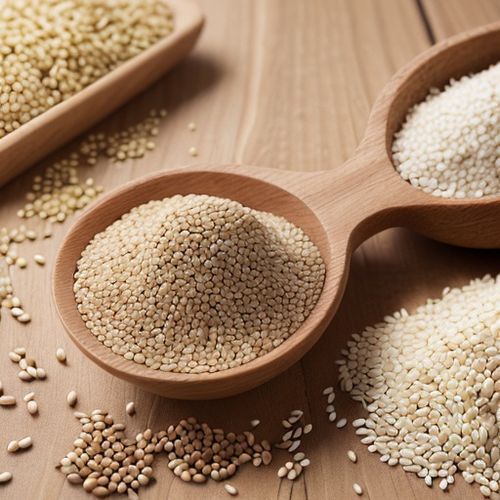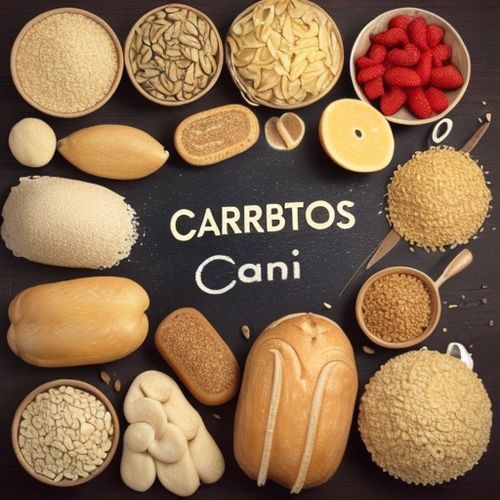Managing blood sugar levels is crucial for overall health, especially for individuals with diabetes or those at risk of developing diabetes. Whole grains are an essential part of a balanced diet that can help stabilize blood sugar levels. These grains are rich in fiber, vitamins, minerals, and antioxidants that support better blood sugar management. Here are the top whole grains recommended by nutritionists to help lower blood sugar:
1. Barley
Barley is a standout choice for blood sugar management due to its high fiber content and slow digestion rate. It is rich in soluble fiber, particularly beta-glucan, which forms a thick gel in the digestive tract, slowing the absorption of glucose into the bloodstream. This helps maintain steady blood sugar levels and reduces the risk of spikes. Barley also contains antioxidants and essential nutrients that support overall health and reduce inflammation. Opt for hulled barley, which retains more fiber and nutrients compared to pearled barley.
Nutritional Profile (per 1/4 cup uncooked hulled barley):
- Calories: 177
- Total Carbohydrates: 36g
- Dietary Fiber: 8g
- Protein: 6g
- Total Fat: 1g
2. Oats
Oats are a popular and nutritious whole grain that can significantly benefit blood sugar control. They are rich in soluble fiber, which helps lower blood sugar levels by slowing down the digestion and absorption of carbohydrates. Additionally, oats contain plant compounds that can decrease post-meal glucose levels and boost healthy gut bacteria. Oats are versatile and can be enjoyed as oatmeal, added to baked goods, or used in savory dishes.
Nutritional Profile (per 1 cup cooked):
- Calories: 166
- Total Carbohydrates: 28g
- Dietary Fiber: 4g
- Protein: 6g
3. Quinoa
Quinoa is a complete protein and a remarkable source of fiber, making it an excellent choice for blood sugar management. It contains protein peptides that help manage blood sugar by preventing the absorption of carbohydrates in the small intestine, thereby reducing glucose levels. Quinoa is also rich in essential amino acids, vitamins, and minerals that support overall health. It can be used in a variety of dishes, from salads to main courses.
Nutritional Profile (per 1 cup cooked):
- Calories: 222
- Total Carbohydrates: 39g
- Dietary Fiber: 5g
- Protein: 8g
4. Farro
Farro is an ancient variety of wheat that includes species like spelt, emmer, and einkorn. It has a low glycemic index and is rich in fiber, protein, vitamins, and minerals. Farro’s chewy texture and nutty flavor make it a satisfying addition to meals. It can be incorporated into soups, salads, grain bowls, or served as a side dish. Farro’s high fiber content helps regulate blood sugar levels and supports better digestion.
Nutritional Profile (per 1 cup cooked):
- Calories: 200
- Total Carbohydrates: 41g
- Dietary Fiber: 4g
- Protein: 8g
5. Sorghum
Sorghum is a gluten-free cereal grain that is rich in antioxidants and has a low glycemic index. It contains compounds that help regulate a signaling pathway affecting energy use and metabolism, which can aid in diabetes management. Sorghum has a chewy texture and nutty flavor, making it a versatile grain that can be used in salads, as a side dish, or popped for a crunchy snack.
Nutritional Profile (per 1 cup cooked):
- Calories: 211
- Total Carbohydrates: 46g
- Dietary Fiber: 4g
- Protein: 7g
6. Buckwheat
Buckwheat is a gluten-free grain that contains all nine essential amino acids, making it a complete protein. It is rich in fiber, potassium, and antioxidants that support blood sugar management and overall health. Buckwheat can be used to make porridge, added to salads, or used in baking with buckwheat flour to create high-fiber pancakes and muffins.
Nutritional Profile (per 1 cup cooked):
- Calories: 155
- Total Carbohydrates: 34g
- Dietary Fiber: 4.5g
- Protein: 6g
Incorporating these whole grains into your diet can significantly improve blood sugar management and overall health. Whole grains like barley, oats, quinoa, farro, sorghum, and buckwheat are rich in fiber, vitamins, and minerals that support steady blood sugar levels and reduce the risk of diabetes-related complications. By replacing refined grains with these nutritious options, you can enjoy a balanced diet that promotes better blood sugar control and overall well-being. Always consult with a healthcare provider or registered dietitian to tailor your diet to your specific needs and health goals.

By George Bailey/May 12, 2025

By Amanda Phillips/May 12, 2025

By Thomas Roberts/May 12, 2025

By Benjamin Evans/May 12, 2025

By Natalie Campbell/May 12, 2025

By Lily Simpson/May 12, 2025

By Megan Clark/May 12, 2025

By Christopher Harris/May 10, 2025

By Emma Thompson/May 10, 2025

By Ryan Martin/May 10, 2025

By Michael Brown/May 10, 2025

By Sophia Lewis/May 10, 2025

By Eric Ward/May 10, 2025

By George Bailey/May 10, 2025

By Elizabeth Taylor/May 10, 2025